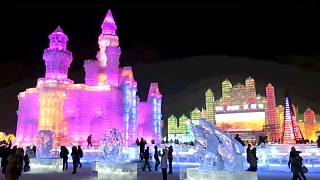Plus drone footage ...
[640],shadow=true,start=,stop=
Live more ...
 A drive around YunNan province
A drive around YunNan provincePlus drone footage ...
[640],shadow=true,start=,stop=

|
Plus - TianHe Lake ...
Plus - a secret stone forest ...
|

|

|
Each year in the capital of HeiLongJiang province a winter wonderland is created ...
|

|
Near LiJiang, in YunNan province.
With Walk East ...
|

|
With Souped Up Recipes ...
Bonus film - the most essential everyday ingredients / flavorings ...
|

|
HeiLongJiang province in north east China.
Lots to see and do ... life well below zero ...
|

|
With Walk For You ...
Bonus films :
- LuoHu district, ShenZhen ...
- Coco Park, ShenZhen ...
- QianHai MixC, Free Trade Zone, ShenZhen ...
- OCT Harbour / OCT Harbor, ShenZhen ...
|

|
Near SiMaTai Great Wall ...
SiMaTai Great Wall night walk ...
|